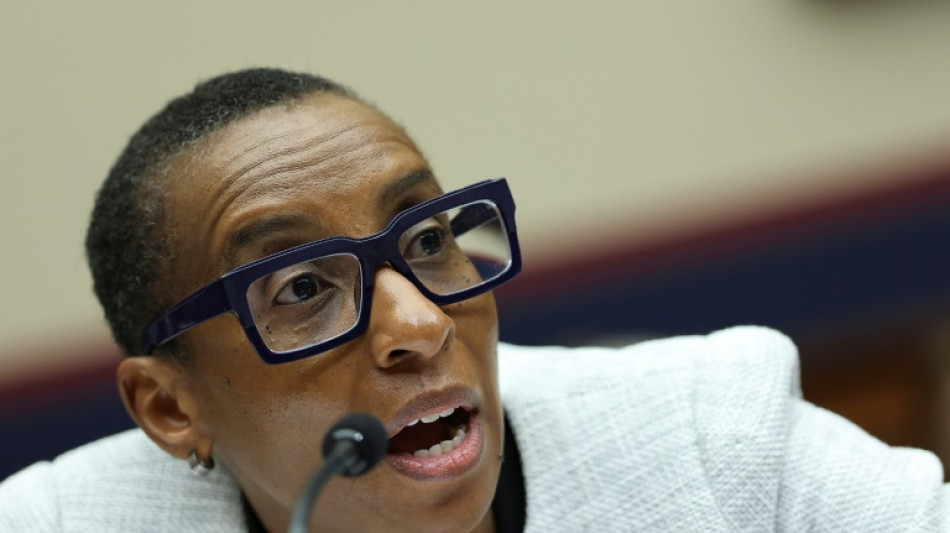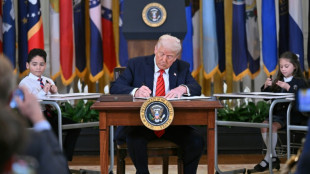

Harvard president apologizes for remarks on campus anti-Semitism
The president of Harvard publicly apologized in an interview published Friday for remarks she made during a congressional hearing about anti-Semitism on US campuses amid the Israel-Hamas conflict.
Claudine Gay, a professor who has led the prestigious US university since July 2023, was asked Tuesday whether calls for "genocide" against Jews would violate Harvard's code of conduct, to which she did not respond with a direct affirmative.
"I am sorry," Gay said in an interview published by her university's student newspaper, The Harvard Crimson.
"What I should have had the presence of mind to do in that moment was return to my guiding truth, which is that calls for violence against our Jewish community -- threats to our Jewish students -- have no place at Harvard, and will never go unchallenged."
Gay and the two other participants at the five-hour-long hearing -- her counterparts at the University of Pennsylvania (Penn) and Massachusetts Institute of Technology (MIT) -- have faced a backlash for their responses to Republican congresswoman Elise Stefanik's questioning.
Stefanik, who studied at Harvard, has called for the presidents to resign and on Wednesday announced that the House Education and Workforce Committee would be "launching an official congressional investigation with the full force of subpoena power" into the three universities, and others.
The rebukes have been bipartisan, with Democrat Joe Biden's White House issuing a statement saying "calls for genocide are monstrous and antithetical to everything we represent as a country."
Israel has been pressing for the destruction of Hamas over its October 7 attack, when militants broke through Gaza's militarized border to kill around 1,200 people and seize hostages, 138 of whom remain captive, according to Israeli figures.
The bloodiest-ever war between Israel and Hamas is now in its third month, with the death toll in Gaza soaring above 17,000 according to the Hamas-run health ministry.
The conflict has ignited tensions on many American college campuses, with protests flaring.
Stefanik, during her line of questioning, likened calls by some student protesters for a new intifada -- an Arabic word for uprising that harks back to the first Palestinian revolt against Israel in 1987 -- to inciting "genocide against the Jewish people in Israel and globally."
When asked if "calling for the genocide of Jews" violates their universities' codes of conduct, the three presidents said it would depend on the context.
Gay said that "when speech crosses into conduct that violates our policies, including policies against bullying, harassment or intimidation, we take action."
In her comments published Friday by the Crimson, Gay said she had gotten "caught up in what had become at that point, an extended, combative exchange about policies and procedures."
"When words amplify distress and pain, I don't know how you could feel anything but regret," she added.
L.Bernardi--IM



